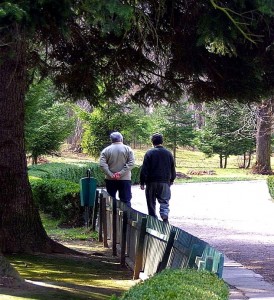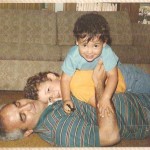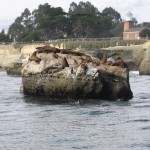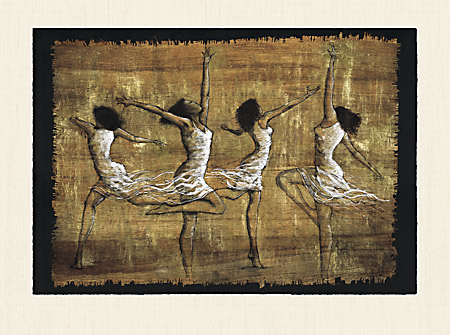Recognizing the Light through our Daily Lives
Stepping carefully as she crossed the intersection, the older woman, wearing a warm coat and knitted hat despite the unseasonably warm weather and carrying a shopping bag of groceries, stopped suddenly, a look of delight on her face. She stepped back and slightly to the side, shifted her purse and bag, and bent to pick up a coin from the street. From my vantage point in the car waiting for the light to change, it appeared to be a quarter — just twenty-five cents. Yet the delight I saw in her face could not have been greater if it had been a thousand times more valuable. She had found something of value, just laying there on the ground in plain sight, waiting for someone to notice it. She picked it up carefully and placed it into her purse. Then she continued to make her way across the intersection on her way home to her apartment down the street.
As she walked on her way and I went on mine, I reflected on what I had seen. A very ordinary item, found in the course of a very ordinary activity, brought great delight to a seemingly very ordinary person. Yet she was a person who was alert and aware of her surroundings. She noticed what was going on, despite the ordinariness of the day and its activities. She saw more than many saw who crossed that intersection on that afternoon, and when she saw, she acted on what she had seen.
Perhaps this anonymous woman has something to teach us as we celebrate the Feast of the Presentation of the Lord, a feast also known as Candlemas and/or as the Feast of the Purification of the Blessed Virgin Mary. Just as Anna and Simeon recognized Jesus when his parents brought him to the Temple to offer the traditional sacrifice required for a first born son, so we are called to be alert and aware so we will recognize Jesus when he comes into our lives. No one was expecting the Christ to come as the infant son of a normal, non-wealthy, non-royal family from Nazareth. Just a carpenter’s son! The Christ was to be a military hero who would drive out the Roman conquerors and establish a new kingdom like that of David. Yet, Anna and Simeon recognized him and blessed God for the gift of seeing him before their deaths. Indeed, Anna went around happily telling everyone she met that the Messiah had been born and had been presented at the Temple … and she herself had seen him!
The challenge each of us faces, I believe, is to see the Christ in the people with whom we share our lives, as well as in the people who formally represent the Christian community, and to celebrate that coming into our lives. The fellow who sits begging on the street downtown, the woman who stops joyfully to pick up a coin in the middle of the crosswalk, the guy who laughingly dances down the street, flirting with all the ladies as he goes to round up some buddies and head off to dinner before the cold night catches up with them, the frightened teen who finds she’s pregnant and is certain her parents will beat her and throw her out on the street if they find out, the doctor who cares for a child without charge when the parents don’t have insurance and can’t pay for the care, the little boy who delightedly strips off all his clothes because he’s learned how to do it and revels in the freedom of being alive and unfettered. Each of these is Christ coming to someone. How do we respond?
Image by Alice Birkin – Public domain
Read More




















